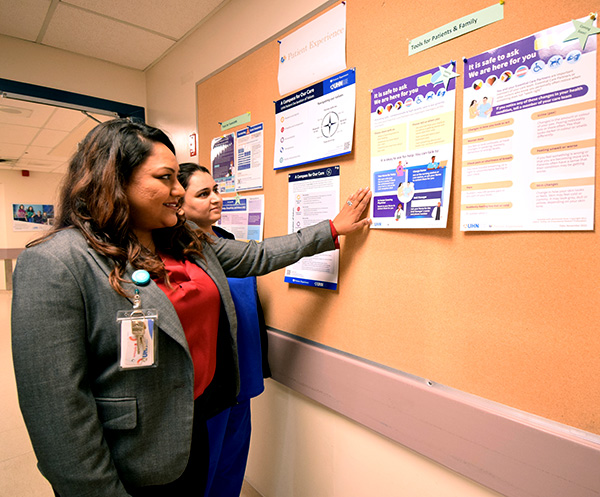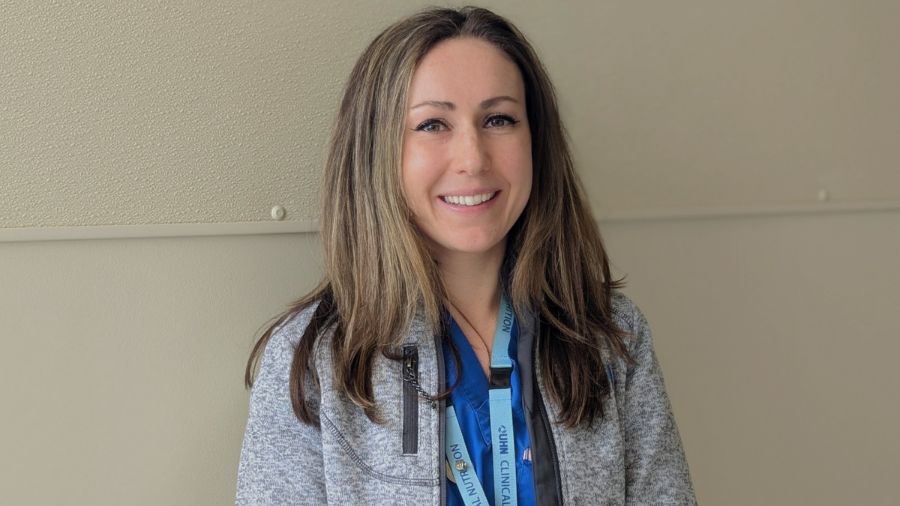
Escalation of care is about raising a patient safety concern in the moment to a team member.
Leslie, a UHN Patient Partner and a social worker at another Toronto hospital, knows from first-hand experience – both as a patient where she experienced the mistake of a staff member and was reluctant to escalate it; and as a health care professional when she raised concerns on behalf of patients – that speaking up is never easy but it is vitally important.
“As a patient, I was worried escalating the error would get the person fired and I think a lot of patients feel this way,” Leslie says. “As a social worker, I had a couple of experiences where something got missed but I caught it and escalated it and things turned out fine.
“These experiences showed me I am good at advocating for others, but not always for myself.”
The World Health Organization has declared September 17 as World Patient Safety Day. The theme for 2023 is “engaging patients for patient safety,” and WHO notes that studies show the impact of meaningful patient engagement include reducing harm, and saving lives and billions of dollars.
Patients and families can often identify patient safety concerns, sometimes even before health care professionals. However, there are barriers – such as reluctance to “bother” busy staff or being perceived as “difficult” – that may prevent them from raising a safety concern.
At UHN, an Escalation of Care Working Group, which brings together TeamUHN members and UHN Patient Partners such as Leslie, is among those leading efforts to improve patient safety and the patient experience.
“It really gives me hope,” Leslie, a UHN Patient Partner for more than five years, says of the working group, which was launched in 2020. “People seem so passionate, they really want patients to be partners and have a voice, and I think that’s so important.”

One of the efforts to empower patients and care partners to raise safety concerns is through the development of two new in-patient-facing bedside posters.
One poster makes clear it is safe to escalate safety concerns and tells them who they can approach, such as the nurse, charge nurse, unit manager, physician or nurse practitioner. The other helps them identify the types of things to bring forward, such as sudden, new or severe pain, sudden shivers, trouble breathing or change in how their skin looks or feels.
“The message is clear, and I think it’s going to have a positive impact,” Leslie says of the posters, which were developed by UHN Patient Partners along with UHN leaders and clinical staff.
The posters are now being used in a pilot project on Unit 9A at Toronto Western Hospital in collaboration with UHN’s Patient Experience and Quality, Safety and Clinical Adoption teams.
“Through the pilot, we are reinforcing that patients raising concerns is part of our norm and is part of a culture of safety,” says Indira Gobin, Nurse Manager on 9A. “We can work together to address a concern before it potentially results in an adverse outcome for a patient.”
Dr. Lucas Chartier, UHN’s Chief Patient Safety Officer, Vice President of Quality and Safety and co-sponsor for this pilot, sees this work as instrumental to engaging patients in patient safety.
“Care starts and stops with the patients, so it is crucial that we not only allow but enable them and their care partners to let us know if and how things are not going well for them,” he says.

Laura Williams, Senior Director of Patient Experience at UHN, says there’s evidence and literature showing how these types of tools can enhance both the experience for patients and staff.
“Partnering with patients and their caregivers is a key factor in positive health outcomes,” Laura says. “Taking a moment to pause, listen and respond to safety concerns from patients builds trust and creates a safer culture of care.”
The message conveyed in the posters and the Escalation of Care Working Group align with UHN’s Patient Declaration of Values, which identifies equity and partnership as a key value. By engaging patients in identifying safety concerns, we can work together to make care safer and prevent patient harm.
As a patient and former health care professional, Leslie says the challenges within the system can feel “overwhelming.” But her work as a UHN Patient Partner has made her realize she can still have a positive impact, and the work of the Escalation of Care Working Group is part of that.
“I’m using my own experience to help others learn,” she says. “I think that really matters.”
To learn more about the UHN Patient Partner Program, email [email protected] or call 416 340 5085.


